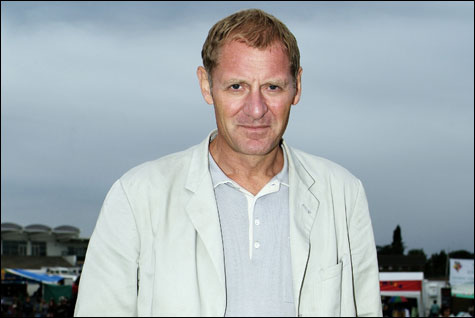
HAPPY CHILD Motion writes about joy and discovery and the kind of fear that shapes you without necessarily scarring you. |
Family memoirs have largely become entries in the abuse sweepstakes from new writers vying for attention, or else catalogues of eccentricity in which dysfunction has become the new measure of good breeding. So a book as scrupulously observed and beautifully wrought as Andrew Motion’s In the Blood can provide a shock of recognition. This, you think, is what memoir was meant to be.
Motion, the poet laureate of Great Britain, has no tale of abuse or dysfunction to relate. In the Blood is bookended by a trauma — the brain injury that his mother sustained in a riding accident when he was 17, an injury that kept her largely in a coma until her death nine years later. But this is the story of a mostly happy childhood, one with childhood’s distinct discoveries, joys, and fears, the kind that shape you without necessarily scarring you. Mostly, though, it’s about the making of a poet. In Motion’s portrait of the inner life of his childhood, that means the refinement of his powers of observation and perception, his sensitivity to the natural world and the manmade world, and especially to the people around him.
The book combines vividness of description — which conjures the physical and emotional particulars of the scenes Motion is relating (and which could not be invented later without making the invention obvious) — with the kind of reflection that, though it may come later, could not come at all without the initial keen observation that makes such reflection possible. It’s Motion’s particular gift to make his fidelity to the East Anglia landscape of his childhood of a piece with the empathy he shows to his family: his father, a slightly distant presence; his younger brother, Kit, both ally and rival; and above all, his beloved mother, his champion and confidante, balancing between providing comfort and refuge to her son and encouraging him to face the larger world.
Motion’s memories of the boarding school he attended are good enough to be placed alongside Orwell’s essay “Such, Such Were the Joys.” (You realize the grimness such places evoke, from Dickens chronicling Nicholas Nickleby’s encounter with Wackford Squeers on down — and there’s a great Dickensian moment: on the train trip back to school from the holidays, young Andrew realizes even the school toughie is crying.) “We didn’t help each other much at school,” Motion writes, “or make plans about how we could make it better. We kept our heads down and waited for time to pass. Scribbling out the days in a little calendar I kept inside my Bible. Counting down towards the holidays or the visits our parents were allowed to make twice a term.”